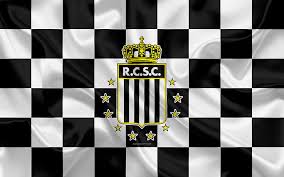Tactical evolution is a fundamental aspect that not only defines the style of play but also reflects the club’s philosophy and long-term vision. Sporting Charleroi FC has shown remarkable adaptability in its approach to football, transitioning from conservative tactics to more aggressive, attacking-oriented strategies over the years. This shift has been pivotal in aligning the team with contemporary trends while maintaining strong ties to Belgian football traditions.
Analyzing the Transition from Defensive to Sporting Charleroi FC
Over the last few decades, Sporting Charleroi FC has shifted from a primarily defensive posture to adopting a more proactive approach on the pitch. This transition can be analyzed through various factors including tactical frameworks, player roles, and overall game philosophy mb66.
This change began to take shape when clubs across Europe started recognizing the importance of possession-based football. Teams that actively sought to control the game began seeing success, prompting Sporting Charleroi FC to reevaluate their playing style. The focus shifted from simply containing the opposition to asserting dominance through ball control and attacking fluidity.
The tactical transition was further influenced by the influx of modern coaching techniques, emphasizing high pressing, swift transitions, and positional play. By adopting these strategies, Sporting Charleroi FC aimed to elevate their competitiveness within the Belgian Pro League as well as in European competitions.
The Role of Key Coaches in Shaping Tactics
A significant factor behind the tactical evolution of Sporting Charleroi FC has been the influence of various head coaches who brought diverse philosophies and methodologies. Coaches such as Felice Mazzu played a crucial role in instilling an attacking ethos within the team’s framework.
Mazzu’s tenure saw a marked transformation in how the team approached games. He emphasized the importance of fluid movement, allowing players to interchange positions seamlessly. This created an unpredictable dynamic that often left opponents struggling to cope. His training sessions focused on developing players’ technical skills and understanding of spatial awareness, which are crucial for successful attacking play.
Moreover, the integration of data analytics into training regimes under recent management has enhanced decision-making processes both on and off the pitch. Coaches now rely heavily on performance metrics to optimize tactics, ensuring that players are equipped with the best strategies to win matches.
The Impact of Tactical Evolution on Player Development
The tactical evolution at Sporting Charleroi FC has had profound implications for player development within the club. By shifting to a more attacking style, the club has prioritized skill enhancement and versatility among its squad members.
Players are encouraged to develop a broader skillset, moving beyond traditional roles. For instance, defenders are trained to participate in buildup plays and contribute offensively, blurring the lines between defense and attack. The emphasis on multifaceted abilities helps create well-rounded footballers capable of adapting to different game situations.
In addition, this tactical transformation has opened pathways for youth talents emerging from the academy. Young players are exposed to an attacking mindset early in their careers, allowing them to flourish in a time when agility, creativity, and technical finesse are critical attributes in modern football.


